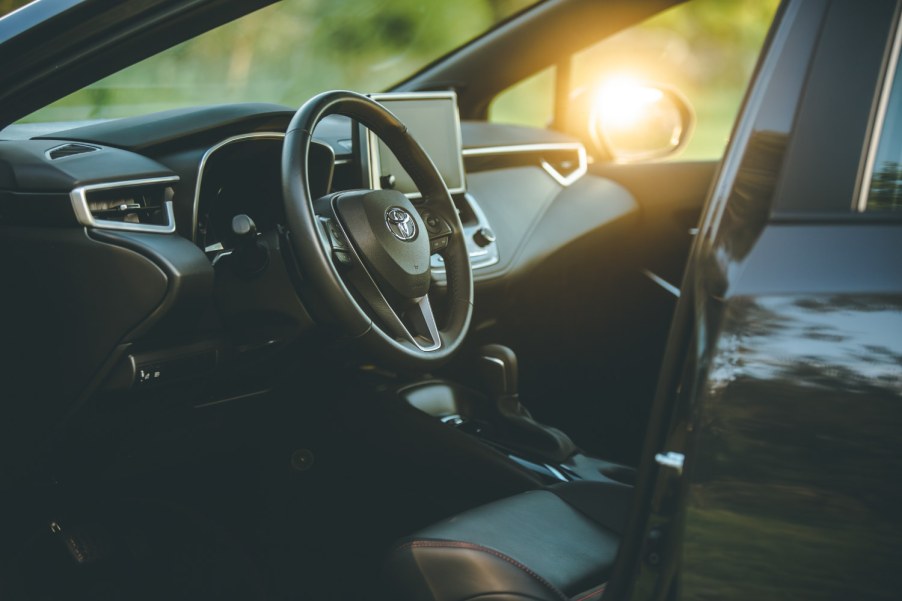
Is it Safe to Drive Your Car During a Heat Wave?
Much of the country is embroiled in a stunning heat wave, and that heat can take a toll on everything. Your car is no exception. But it can be safe to drive your car during a heat wave if you follow these tips.
A car can overheat on a hot day; here’s how to stay safe
With higher ambient temperatures comes increased wear and tear on your engine. For most cars, the cooling system is up to the task of keeping things at the proper temperature. While your engine may compensate for the higher temperature with a change in engine timing, overall, most modern cars have no problem dealing with steamy summer days.
However, it is imperative that your engine cooling system is in good working order. A failing water pump, old coolant, or leaky lines can limit the efficiency of your engine’s coolant. This can cause temporary spikes in engine temperature. And to be totally fair, this is a problem whether it’s 100 degrees outside or not. But the elevated ambient temperature provides significantly less natural cooling, so the effects of a misbehaving engine cooling system can be more damaging.
If you don’t have time for a full-service appointment, you should at least check the coolant reservoir to ensure it is at the proper level. You can also be on the lookout for signs of overheating, including:
- Sudden change in engine performance
- Sweet smell in the cabin
- Steam from the engine bay when stopped
- Engine temperature indicator is above the halfway mark
If you notice any of these, pull over to a safe place as soon as possible to avoid damaging your engine any further.
Check tire pressures before driving in extreme heat

If your tires are filled with air rather than nitrogen, extremes in temperature can cause noticeable changes in tire pressure. During a heat wave, tire pressures will rise, changing the handling profile of your vehicle. For most, this isn’t much of an issue. But if you’re driving on older or worn tires, it may not be safe to drive during a heat wave.
Not only is the higher internal tire pressure adding stress to the system, but high road temperatures soften the tire overall. This combination can cause sudden blowouts at highway speeds. You don’t need us to tell you just how dangerous that could be.
Pack a cooler for longer trips

If you’re heading further away from home, you don’t want to rely on rest stops and convenience stores during a heat wave. Should your car break down, you want to have a decent supply of cool water to stay safe until help arrives. It may also be worthwhile to pack a portable tent or sunshade, so you can take refuge away from the scorching heat as you wait for AAA.
Avoid injury: Leave your car windows cracked open
This has more to do with when your car is parked, but leaving the windows cracked open during a heat wave can have multiple benefits. For one, it will lower the interior temperature so seat belt buckles (and other shiny surfaces) are less likely to cause an immediate burn. A report from the National Library of Medicine notes that infants can experience burns from both metal and plastic car seat components during extreme heat waves.
Leaving the windows cracked will also reduce the risk of suddenly shattering windows due to the extreme heat.
Is it Ok to drive in 100 degree weather?
In all, it’s perfectly ok to drive in 100 degree weather. You just have to ensure that your vehicle is up to the task and you’re taking proper precautions to stay safe while on the road. Have your car serviced to ensure proper lubrication and cooling for your engine. And be sure your tires are in good shape before hitting the road. Finally, take precautions like packing extra water and leaving the windows open when parked to stay safe when driving during extreme heat.
If you want more, we’ve covered some more tips for keeping your car’s interior cool when the mercury rises.




